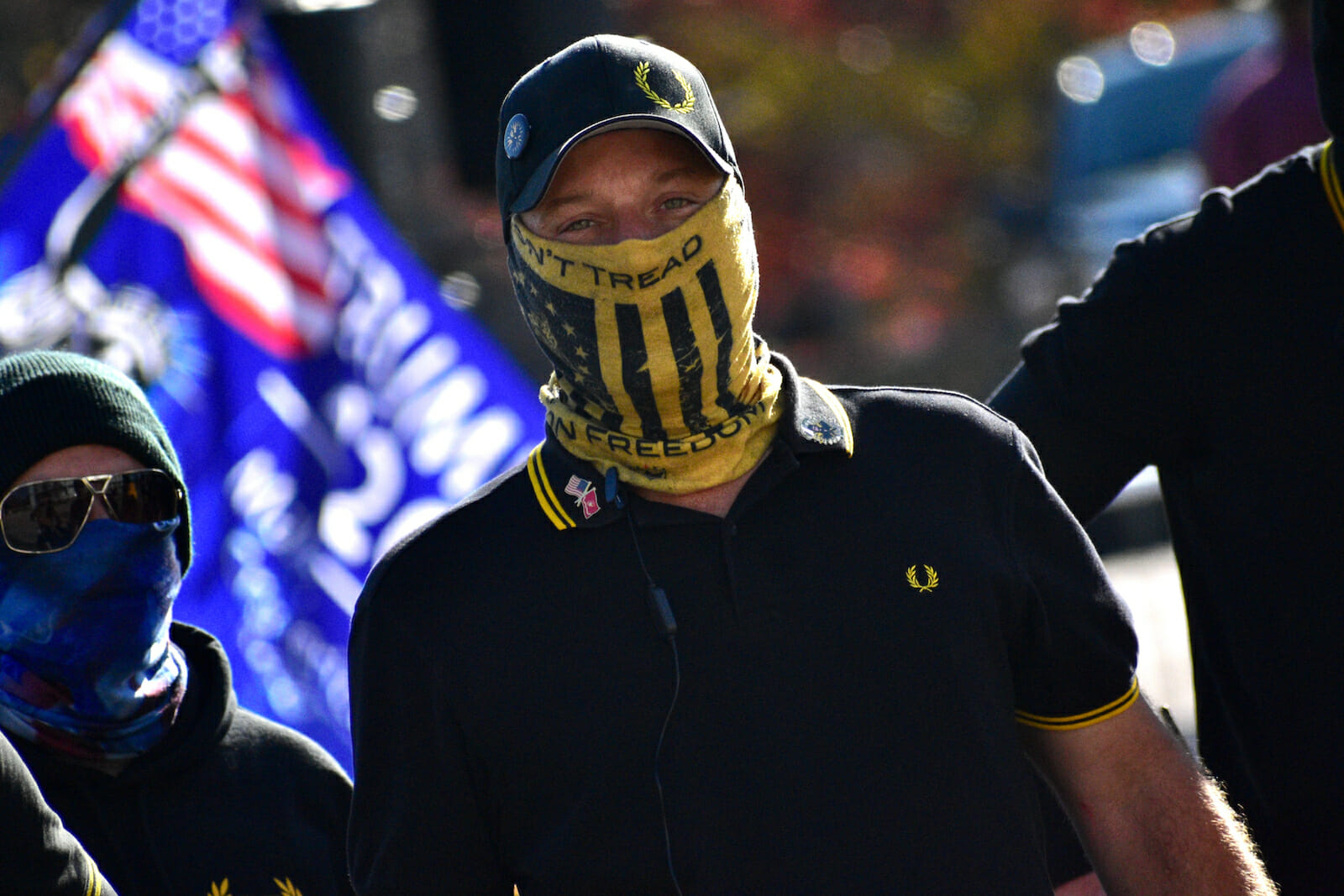
Should New Zealand Label Far-right Groups as Terrorist Organisations?
Currently, there is a debate in New Zealand over designating certain far-right groups as terrorist organizations. Some suggest that such a lack of labeling of these ideological groups shows an inherent bias in the labeling process, especially considering that groups designated as terrorists are adherents to Islam. Should the government label far-right groups, like QAnon, the Proud Boys, and others, as terrorist organisations?
Terrorism is a social construct, our understanding of it changes depending on communities and societies in general. Whilst acts of terrorism have awful consequences, and the effects are observable, who is a terrorist, and what is terrorism is entirely subjective. Even so, the mere definition of terrorism is not widely agreed upon, with over 200 different variances in academic and political circles. This makes the designation of the term inherently contentious, assigning inherent negative normative associations, and as such, should not be assigned without a clear basis and evidence. Labeling a group a terrorist organization reflects societal power relations and is a show of force by a government against an ideology or group. In this case, the socio-political and societal consequences of such a designation would be a net positive in the security of our society, which is why it is still being used, and should be used in this context.
So, why doesn’t New Zealand follow Canada and Australia’s lead and label international white supremacist and neo-Nazi groups as terrorist organisations, and why have they only labeled Islamic organisations as terrorists? Because it’s not as simple as it sounds. The goal in labeling ISIS and other groups as terrorist organizations is to limit their travel and entrance into New Zealand. This same geopolitical context simply does not apply to neo-Nazi and white supremacist groups.
Is New Zealand at risk of being left behind by not labeling these groups as terrorist organisations, and should they label them as such? Whilst some of these groups do not seem to pose a direct threat to New Zealand now, we just do not have the capability of knowing the true extent of the influence these groups have. There is no way of truly knowing how many members these groups have, and whether they have a presence in New Zealand.
Some argue, however, that the labeling of these organisations would not have the desired impact in terms of stopping attacks, because of the decentralised and individualistic nature of far-right groups. Whilst this may have merit, the solution is not to do nothing. Rather, every precautionary avenue possible must be explored, and labeling them as terrorist organisations is a starting point.
Labeling a group a terrorist organization is an inherently political action – see the labeling of the PKK as terrorists in response to NATO partner Turkey’s insistence. Not only does it send a strong, denunciatory message to those individuals who are part of those groups, or who may share a similar ideology, it allows the government to freeze their assets and restrict travel into the country.
The government must be careful in which organisations they designate as terrorists. Too many, and the term becomes meaningless, and we risk opening a slippery slope, where whoever is in power can label whatever groups as terrorists. Designate groups who are not widely recognised as terrorists, and you lose political capital and legitimacy in the designation process. The government must not be reactionary in their designations, and only make them when there is clear evidence that there is a threat to New Zealand’s security from these groups, and that the designations do not infringe upon human rights. They must not use the term as a derogatory label, and rather only to ensure the safety of New Zealanders.
New Zealand should follow Australia’s lead in this, as they have accurately noted that the glorification and promotion of violence from these groups can contribute to the radicalisation, and chances of future violence from this ideology. Following Australia and Canada’s lead in designating these organisations as terrorists would send a clear, strong message that these violent organisations are not fit for our society and I recommend the government change their stance on this, to better protect New Zealanders.

